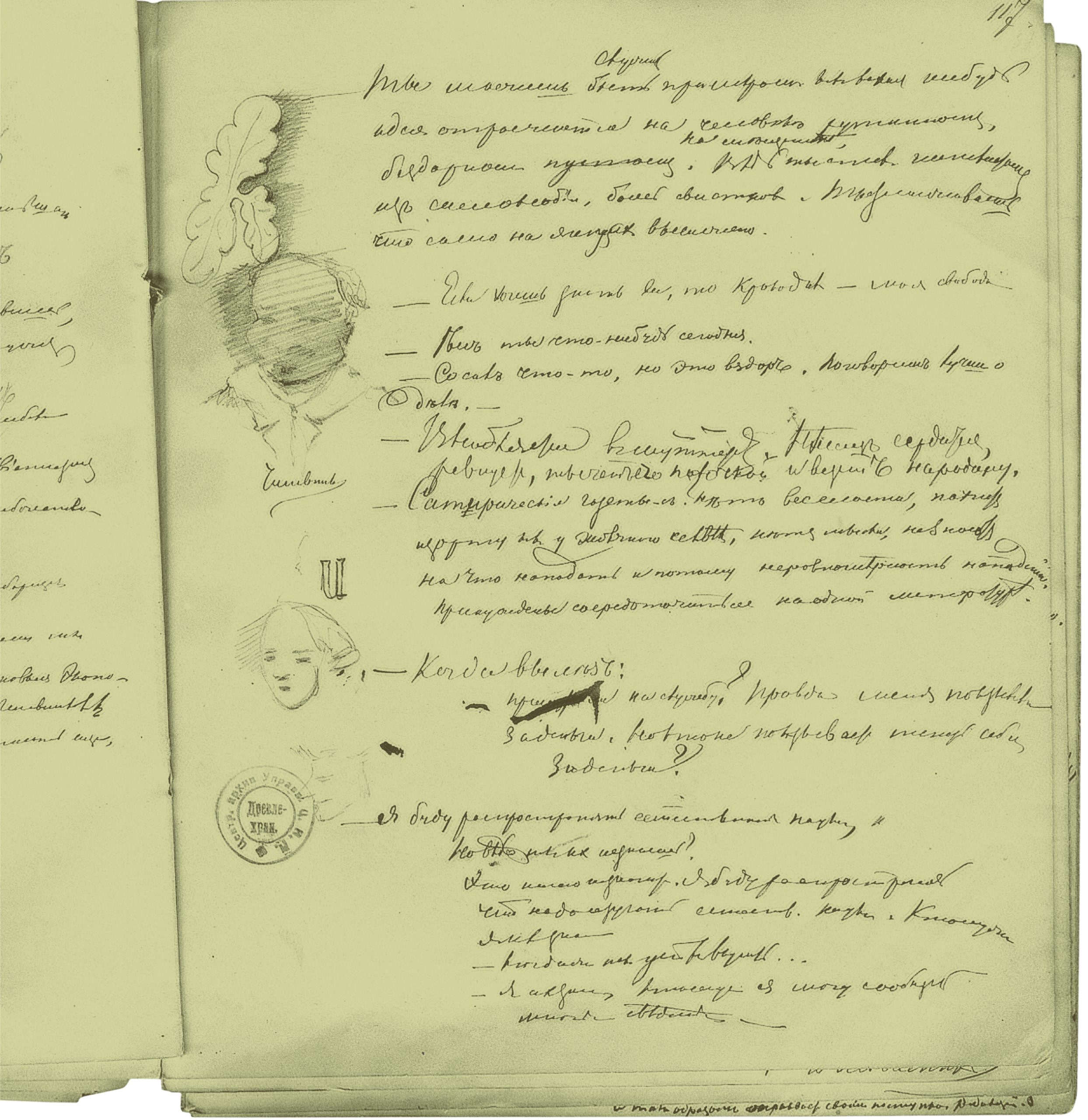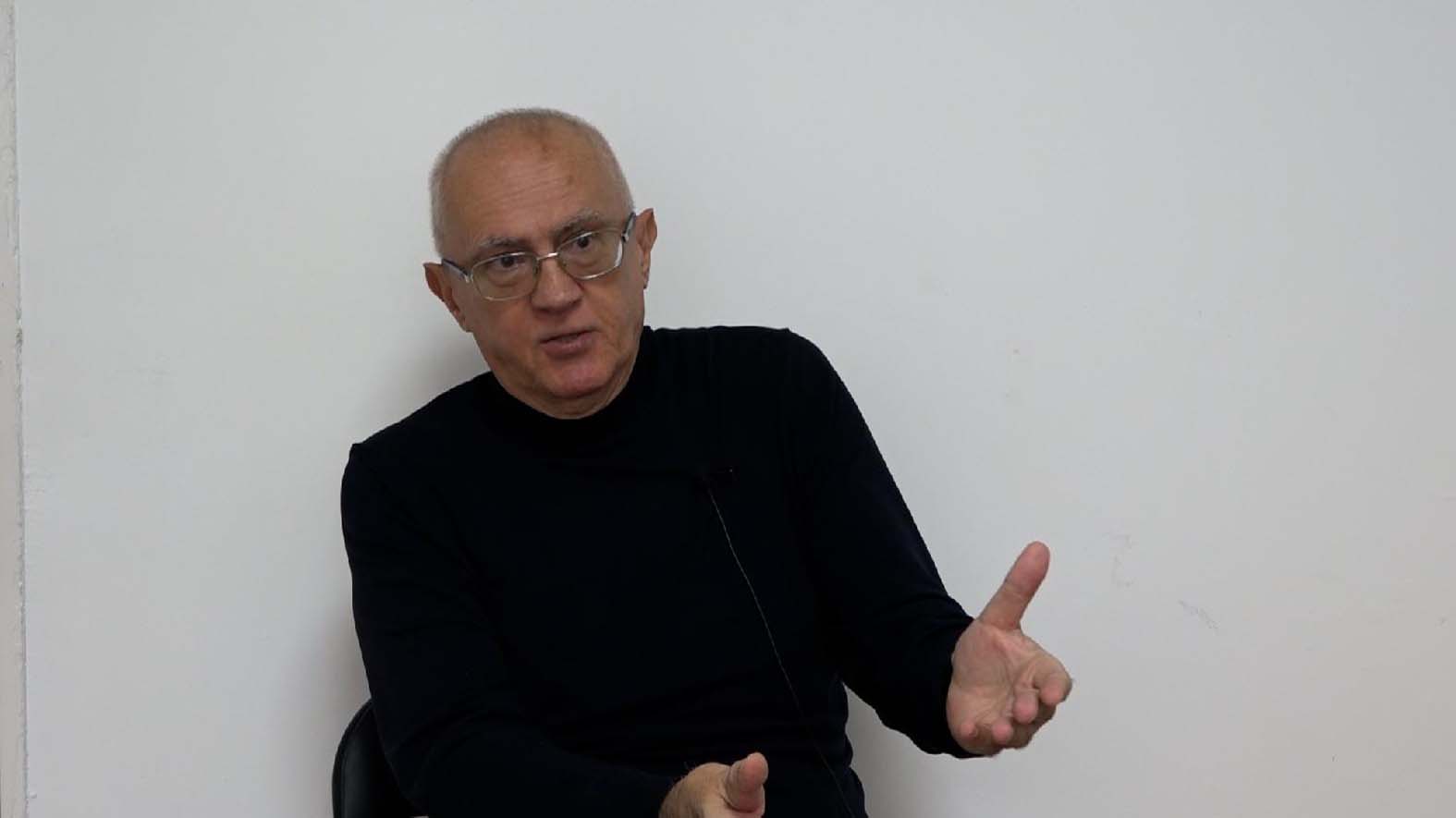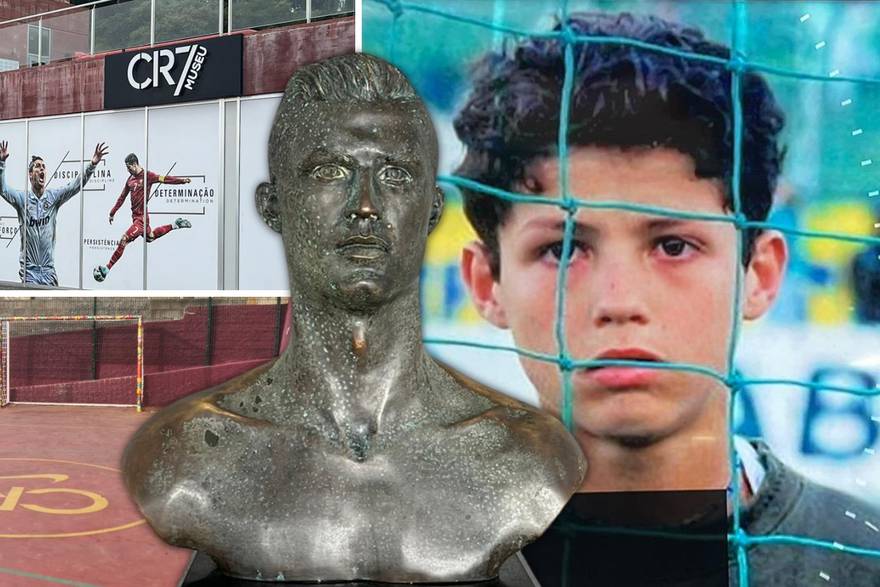« A sixth great extinction is in progress, » warns Jane Gudol – BBC News in Serbian
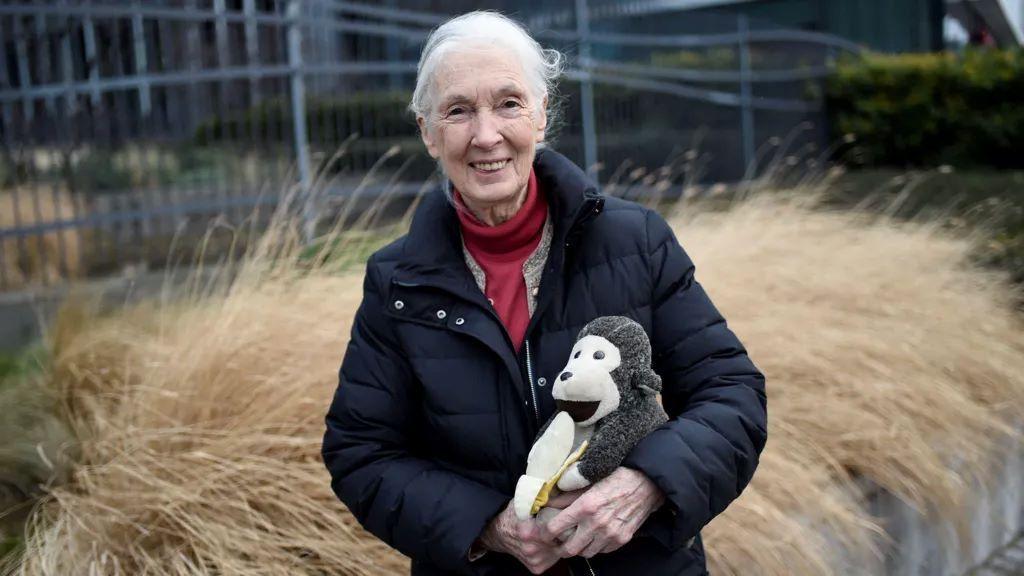
With its recognizable joke over his shoulders and gray-haired hair, Jane Gudol radiates serenity – even over our slightly clouded video call.
In the Vienna Hotel room, a journalist team and a small group of filmmakers, who document her latest surrender tour, are flying around her.
Famous primatologist and conservationist It is furnished with a high-backed armchair in which Maltene disappears its slender constitution.
On the screen I see that behind her, on the shelf, her monkey toy is Mr. H.
This toy has received almost 30 years ago from friends and has traveled to the world everywhere with her ever since.
Doctor Gudol is now 90, and she and her g. H still travel.
« I’m a little tired, » she admits.
« I arrived here from Paris. And after that I’m going to Berlin, so in Geneva. I’m talking about life hazards and some of possible solutions, » she says.
‘The sixth great extinction is in the course of’
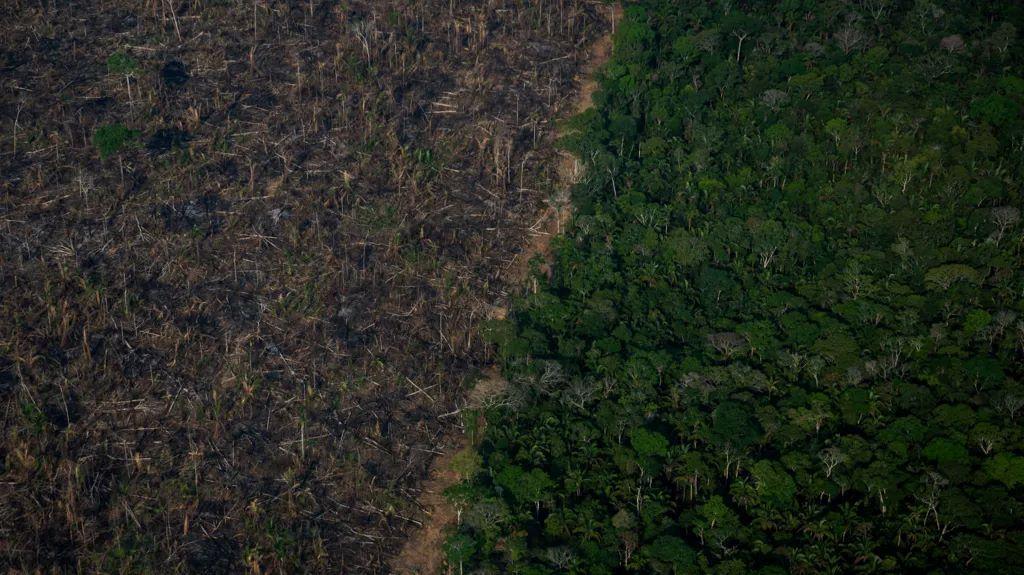
One of the decisions that he wants to talk to today is the planting of trees and habitat restoration that its same name of the Foundation and the Non-Profit Technological Company Ekozia wants to implement in Uganda.
Over the past five years, with the help of local communities and small farmers, these organizations planted almost two million trees.
« We are in the middle of sixth great extinction, » says Dr. Gudol during me during Our interview for BBC Radio 4.
« The more we can do on the restoration of nature and protecting existing forests, the better. »
The primary goal of this project is to renew the endangered habitat for 5,000 chimpanzees in Uganda.
Dr. Gudol studied and led campaigns for the protection of primates for decades.
But this activist also wants to point out the threat of forest busts representing our climate.
« Trees must grow up to a certain height before it can start doing their job, » she says.
« But all this planting trees help absorb carbon dioxide. »
It’s less time

Doctor Gudol says that today, more than ever before, an emergency measure needs to slow down the warming of our planet.
We still have time to start slowing climate change and loss of biodiversity, says Dr. Gudol.
But that time, he passes less, adds.
Destruction of forests and other places with wild animals, it emphasizes, is essentially related to the climate crisis.
« It changed so much for my life, » she says, remembering Tanzania, where she started studying chimpanzees more than 60 years ago, « you could set the calendar after the beginnings of the two rainy season. »
« Today, it sometimes rains in the dry season, and sometimes a drought occurs in the rainy season. This means that the trees gives fruit at the wrong time, which disturbs chimps, but also insects and birds. »
During the decades in which she studied and advocated the habitats of wild chimpanzees, she says that she saw the destruction of forests across Africa: « and I saw a decline in the number of chimpanzees. »
« If we don’t team up and imposed strict regulations about what people can do the environment, if we do not stop the environment and kills the soil, thus achieving the biodiversity effect – our future will eventually be convicted. »
‘He looked at me in the eye and squeezed my fingers’
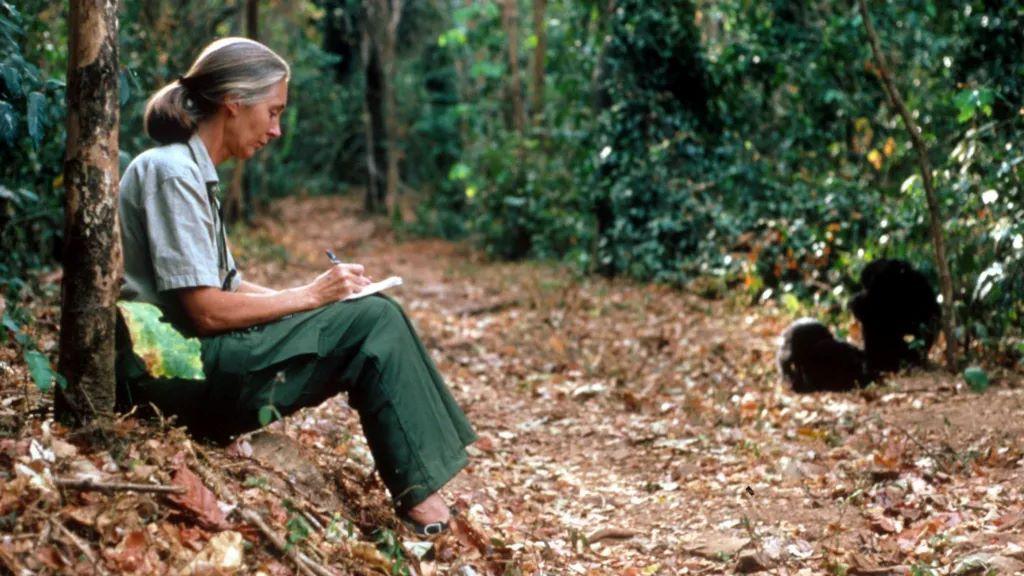
When I hear he talks like this, it gives me insight into a strictness that disrupts her articulated, gentle posture.
When Jane Gudol began following and studying Chimpanzees in Gamba National Park in Tanzania, she was a pioneer.
Her research, which is considered revolutionary, was controversial.
She was the first person to attend and cases to make chimpanzees and use tools and documented that.
Namely, you are receiving preparing sticks for fishing.
Before her observations, it was a trait that was considered uniquely human.
She disclosed that animals build strong family ties – and even engage in war activities around the territory.
But her approach – so closely associated with animals studied, their appointment and calling « friends » – was despanted among somebody (mostly male) scientists.
Her supervisor and mentor, Professor Luis Liki, however, video is benefit in her technique.
« He wanted someone whose mind was not crazy to reducculate the attitude of science towards animals, » Dr. Gudol explains.
« You don’t have a dog, a cat, a hare, a horse without giving them a name. It was the same when I studied squirrels in my own girlfriend – they had names. »
Her methods – and her sense of closeness with primates she dedicated her whole life – they gave her a unique perspective.
She tells me about the « wonderful moment » with the chimpa, which called David Grayberd, the male of the chimpe, which for the first time, saw how to real terms catch.
« He was the first to lose fear of me, » she recalled.
« I sat next to him, and he was lying on the mature red fruit of the oil palm. Then he turned his head away and he turned in, looked me into his eyes, gave me his hands and gently squinted my fingers. »
« So chimpanzees are soothing each other. We understand perfectly – a sign language that obviously preceded human speech. »
‘We have to be stricter’
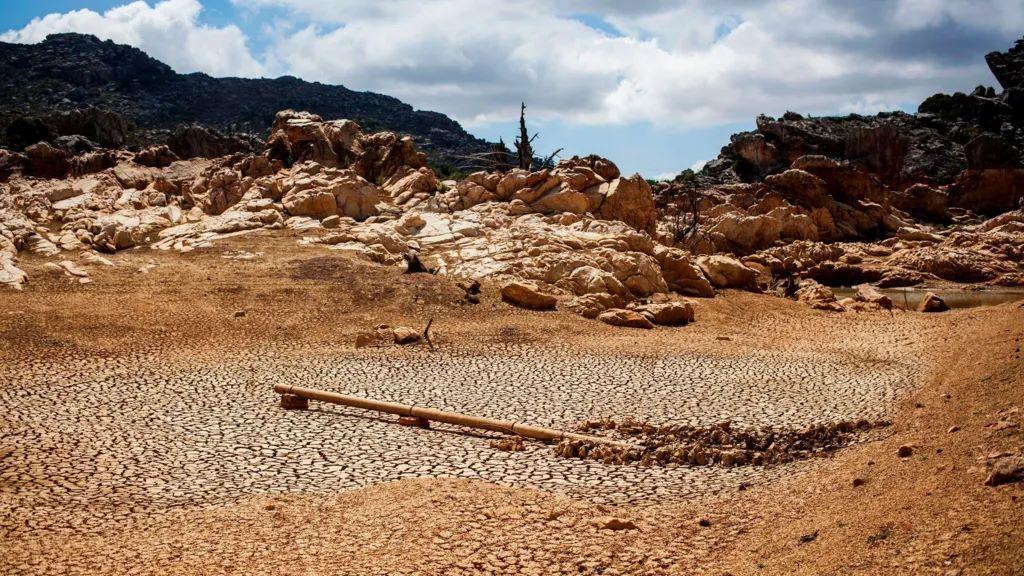
Doctor’s Career Gudol was often full of challenges.
She wrote about the early years of her work for Professor Liki, who was a valued scientist, and who had a huge impact on her career.
He declared love again, making pressure on her who could experience as sexual abuse today.
But she refused all his courts and kept strict attention to work and her beloved chimpanzam.
Today, when she turned 90, it seems like it doesn’t slow.
So what is it that makes Doctor Gudol push further?
On this occasion, it is perfectly unambiguous – charmingly offended by the issue:
« People want to want the future for their children. And if she wants, we need to be stricter about life legislation. »
« We haven’t had a lot more time left to help the environment. We did a very much on her destruction. »
The BBC in Serbian is from now on and on the morning, follow us Here.
Follow us on Facebook, Twitter, Instagram, Jutjubu and Vajiberu. If you have a topic suggestion for us please contact (Email Protected)

